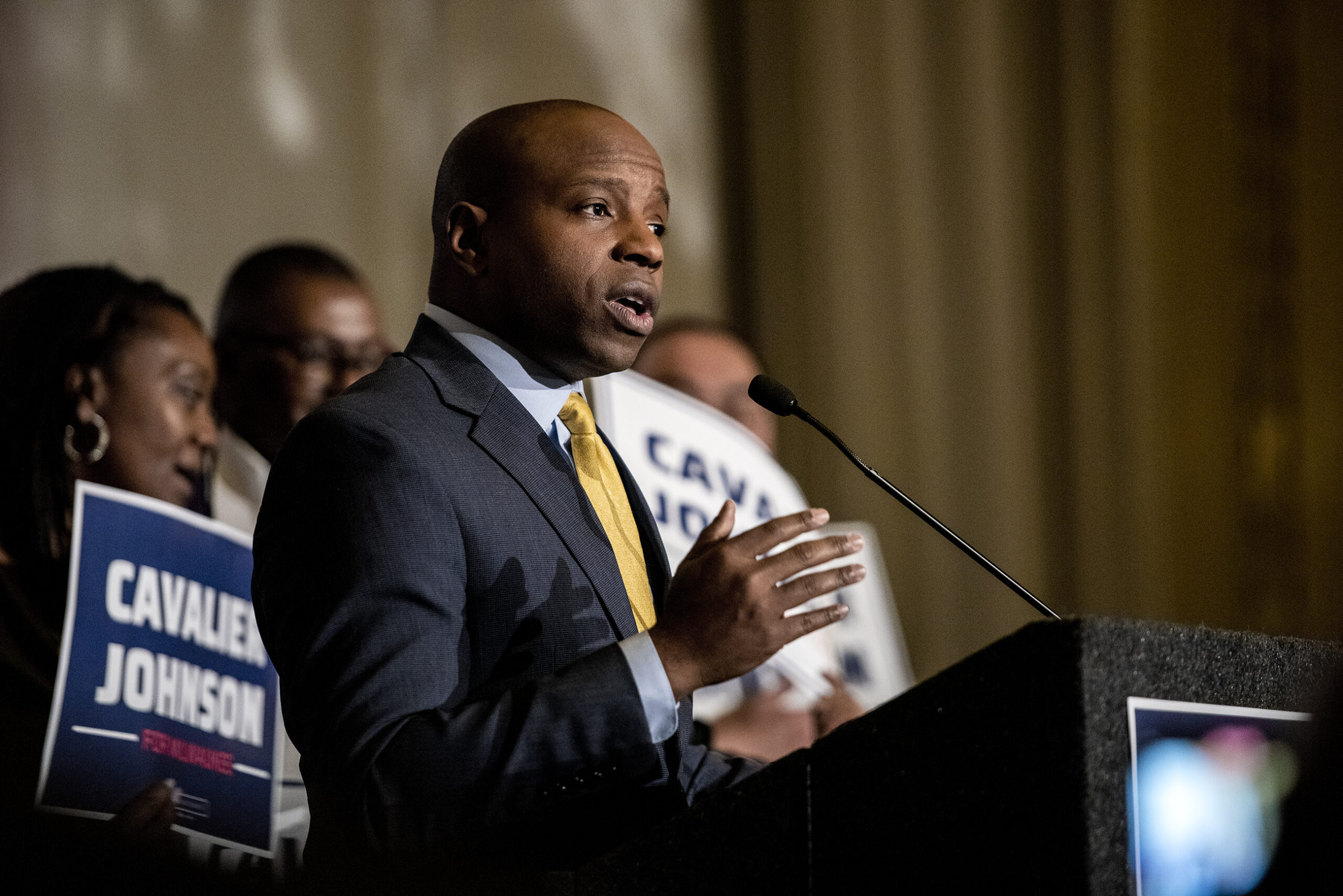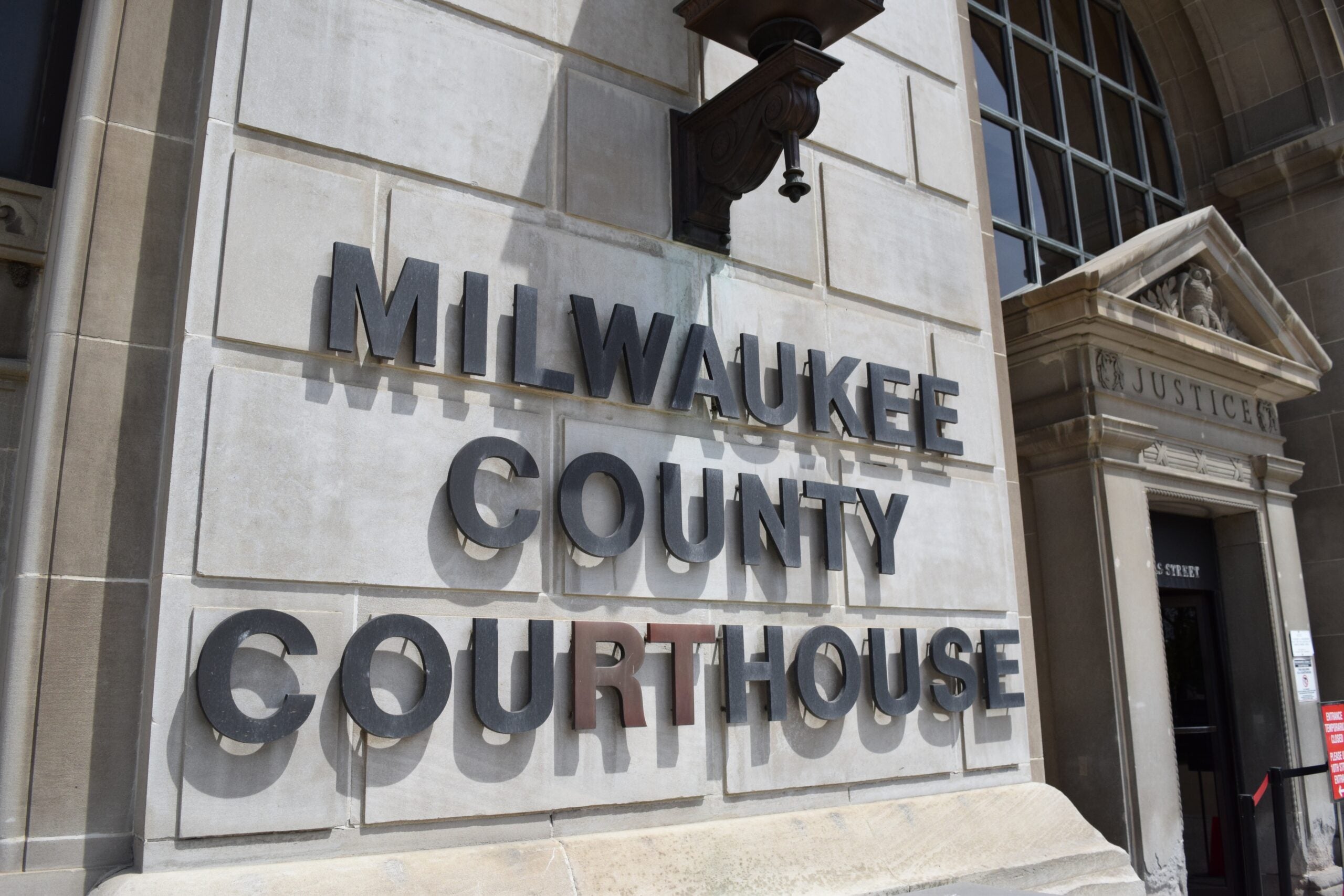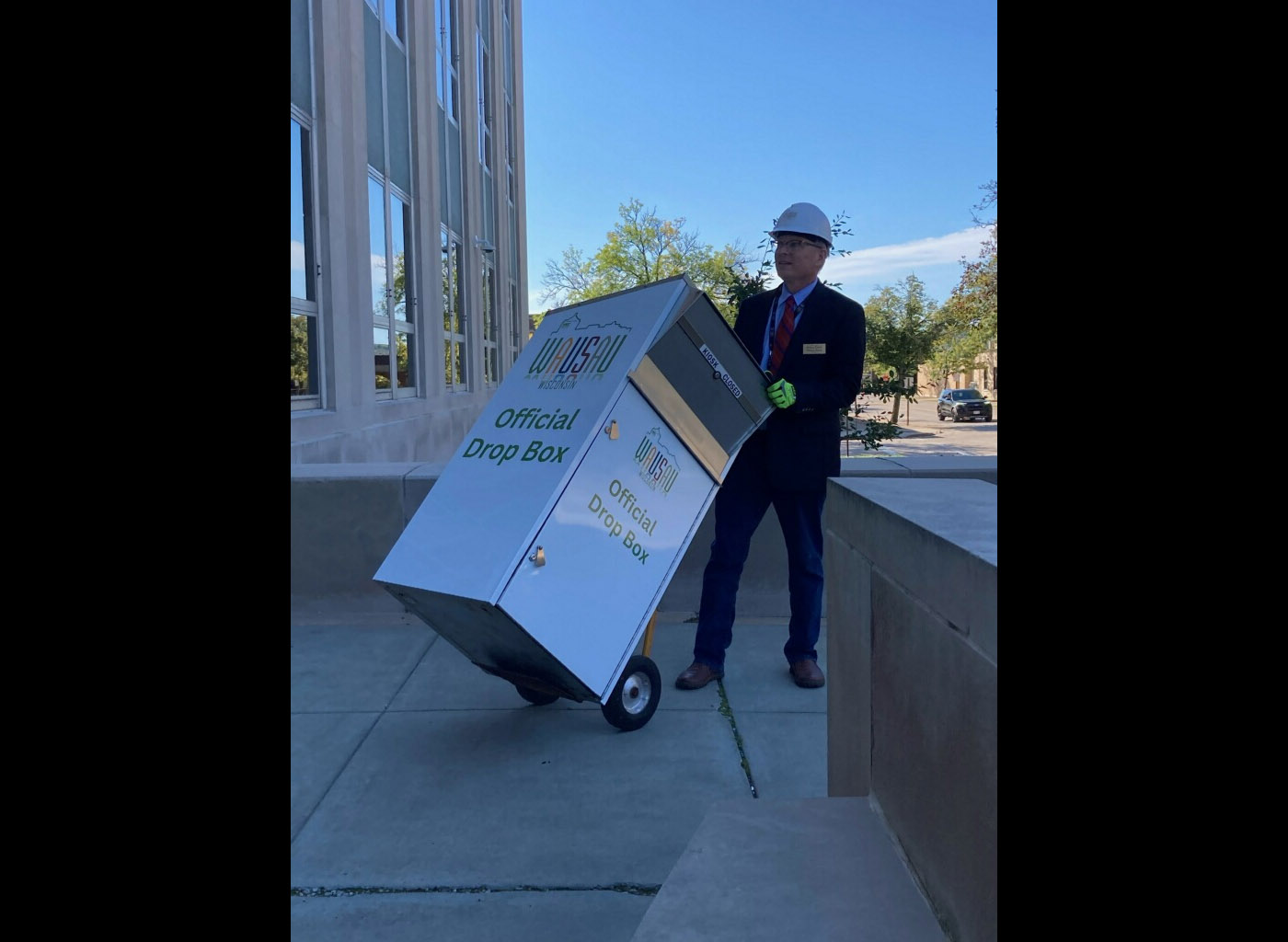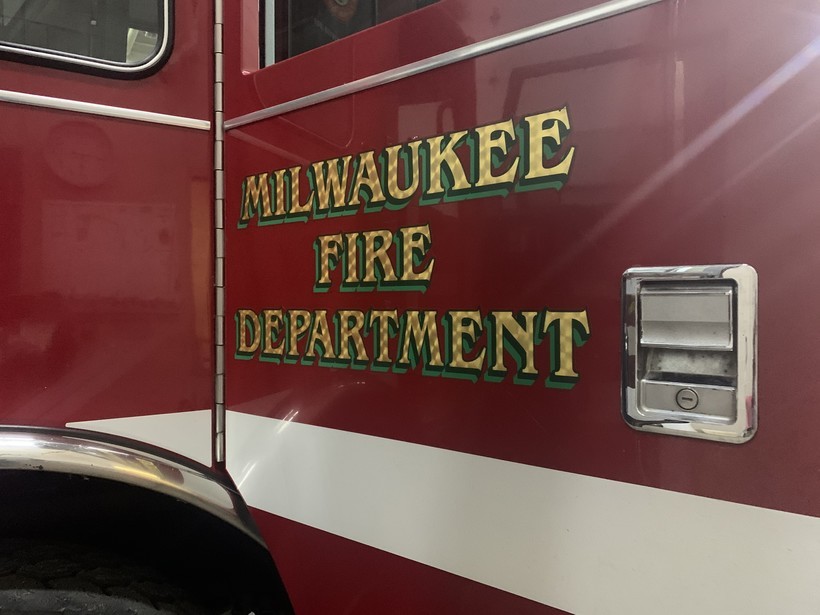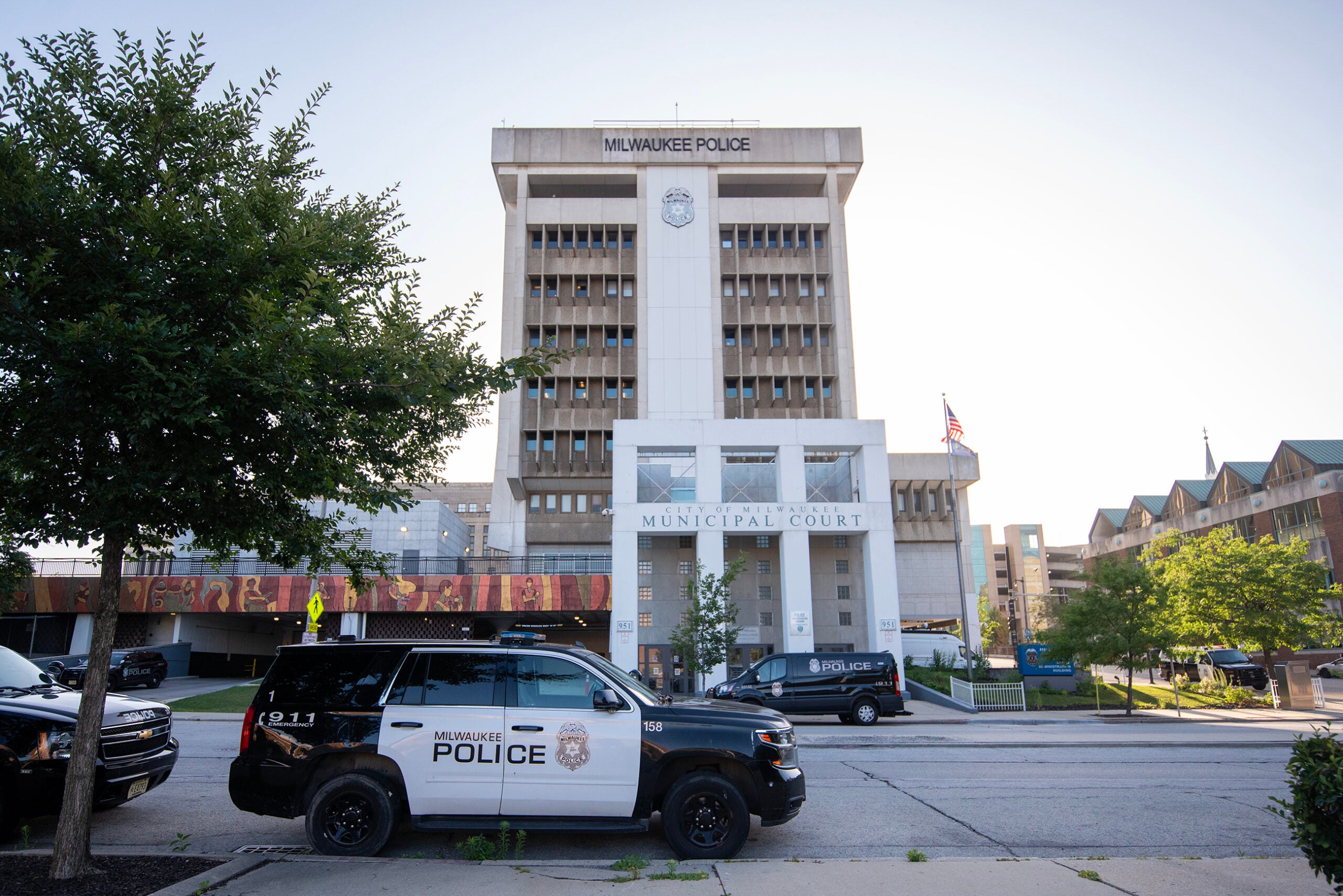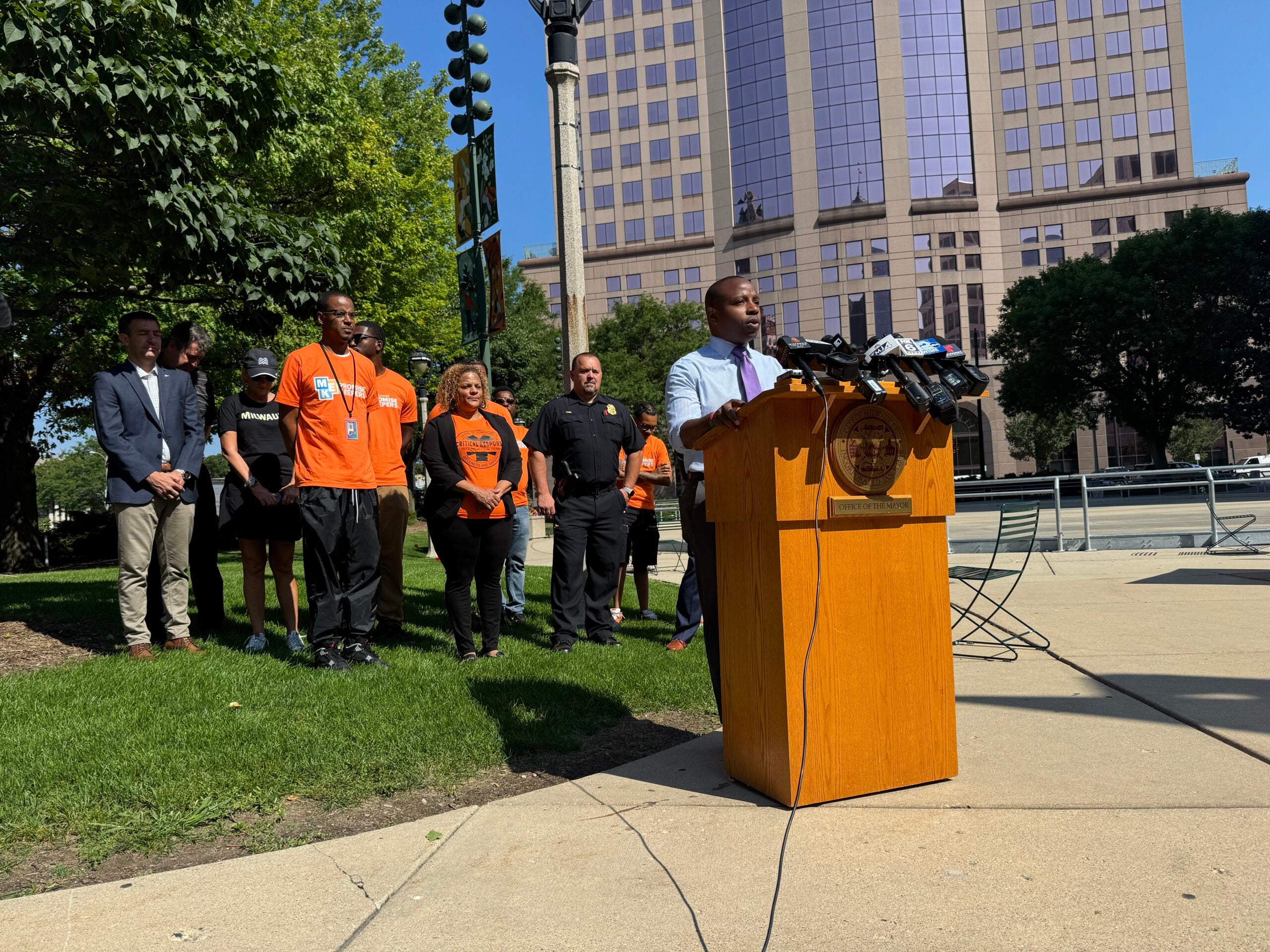Three years ago, Cavalier Johnson stepped into the Milwaukee mayor’s office as a relative unknown following longtime Mayor Tom Barrett’s departure for an ambassadorship.
On Tuesday night, Johnson, 37, cruised to victory for his first full term as mayor, the lopsided vote another sign of his growing political clout in Wisconsin as a young mayor who has racked up a series of wins in a city where good news has often seemed elusive.
Johnson received 80.98 percent of the vote against Wisconsin God Squad founder David King, according to unofficial election results. Johnson took to the stage at Potawatomi Casino Hotel after the polls closed Tuesday night, surrounded by his family and closest supporters.
News with a little more humanity
WPR’s “Wisconsin Today” newsletter keeps you connected to the state you love without feeling overwhelmed. No paywall. No agenda. No corporate filter.
“My dear friends and magnificent fellow citizens of this magnificent city that we love called Milwaukee. Guess what? We did it,” Johnson exclaimed to the crowd.
Johnson has quickly risen to prominence during his time in public office. He was first elected to the Milwaukee Common Council in 2016 after winning a tight race. Now, eight years later, he has won his second mayoral election in just three years by wide margins after taking over for Barrett.
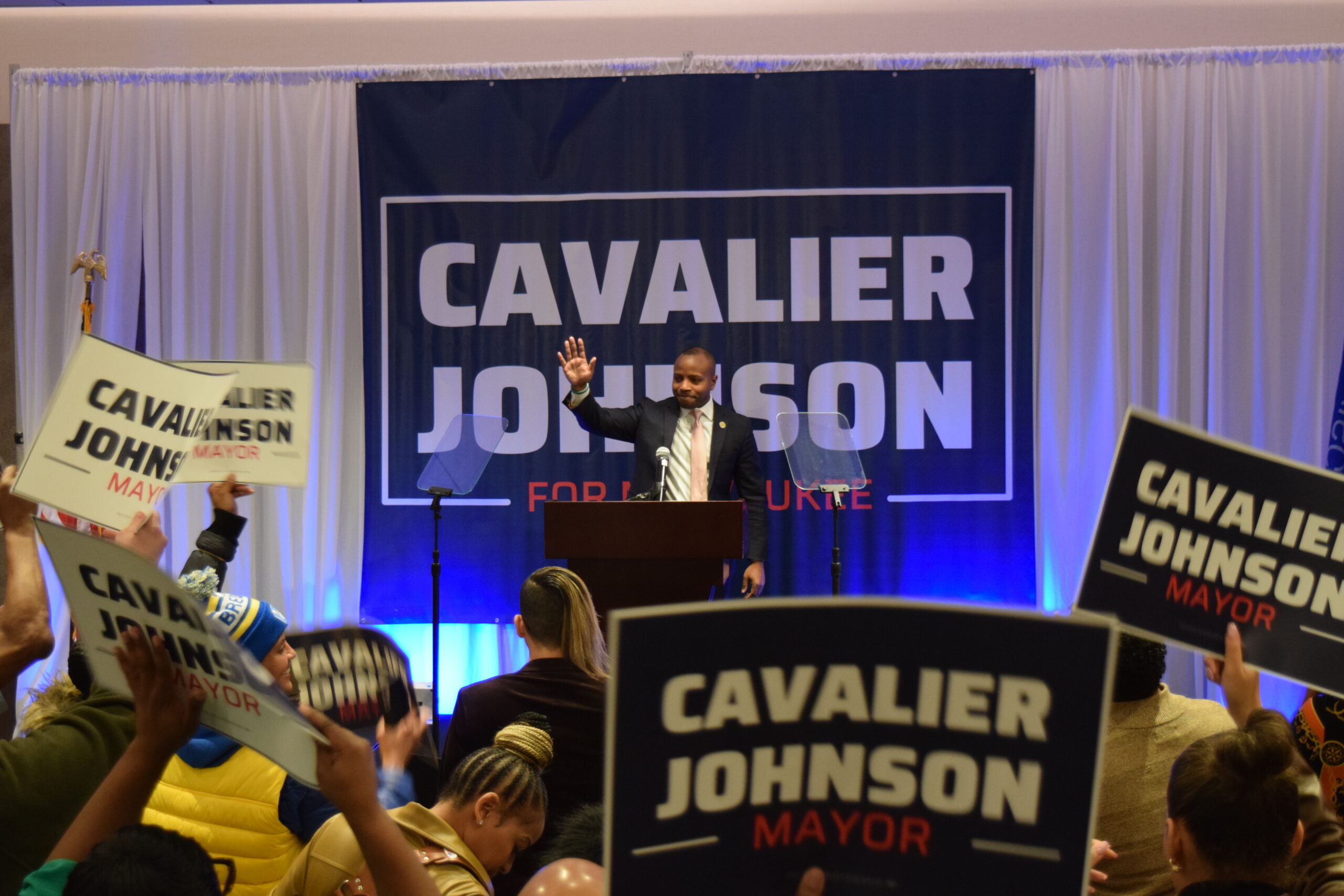
Johnson is Milwaukee’s first elected Black mayor.
Since rising to the office, he has placed an emphasis on working with state lawmakers in Madison, and he’s received praise for helping bring the Republican National Convention to Milwaukee this summer. Johnson was also pivotal in negotiations leading to the passage of a state law to increase shared revenue in Wisconsin, legislation that cleared the way for Milwaukee to enact a local sales tax and eased a looming financial crisis in the city.
His top priorities as mayor have included improving public safety, strengthening economic opportunities and working to grow the city’s population. Tuesday night, he discussed those efforts and others while speaking to supporters.
“Our efforts on economic development are opening doors by aggressively attracting new businesses, fostering job creation and expanding opportunities for every resident of Milwaukee,” Johnson said.
Johnson said he believes the city has become safer in the last two years under his watch, but he pledged to continue work on public safety efforts.
“I believe that every citizen, in every neighborhood, all across our city, deserve to live without fear of crime, deserve to live without stray gunshots and deserve to live without people driving recklessly on our streets,” Johnson said.
Johnson took over for former Mayor Barrett in 2021
Johnson, a Milwaukee native, first took office as acting mayor in late 2021 after Barrett was nominated by President Joe Biden to be the U.S. Ambassador to Luxembourg. Johnson then won a special election in 2022 to fill out the balance of Barrett’s term, beating former Milwaukee Alder and current State Rep. Bob Donovan, a Republican from Greenfield.

Johnson grew up in the city’s troubled 53206 zip code and attended Milwaukee Public Schools. He was one of 10 siblings — his father worked as a janitor for the Milwaukee Public School District and his mother as a certified nursing assistant.
After attending the University of Wisconsin-Madison, he returned to his hometown to work for the Milwaukee Area Workforce Investment Board, now Employ Milwaukee.
Johnson worked as a staff assistant in the mayor’s office before he won his first election in 2016 as an alder on the Milwaukee Common Council. He was reelected in 2020 after running unopposed and was then selected by his colleagues to serve as the Milwaukee Common Council President.
What he’s done so far
Johnson placed a heavy emphasis on public safety while campaigning. In his first official act as mayor, he declared reckless driving a public health crisis. He has pushed for harsher penalties for reckless driving offenders and has championed street redesign changes to help make it more difficult for people to speed across the city.
Milwaukee saw a dip in homicides for the first time in four years last year, but Johnson and other local leaders are still pushing for the number of murders and nonfatal shootings to go down. Johnson has repeatedly called for stricter state and federal gun laws to help address violent crime.
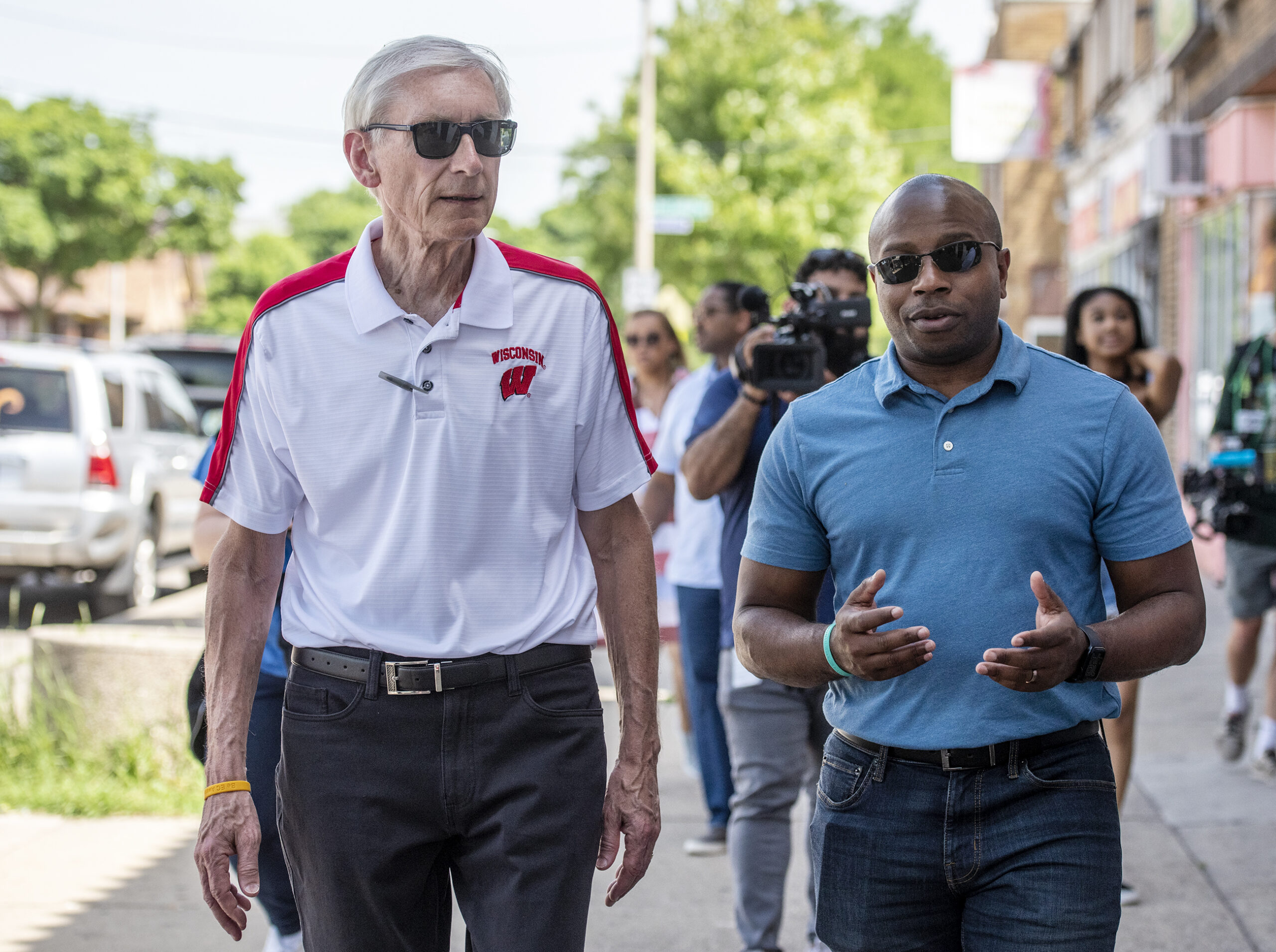
After years of budgets that included position and service cuts, Johnson presented a budget to the common council last fall that included $205.7 million in new revenue, largely due to the bipartisan law to overhaul local government funding. That law allowed the city to pass a 2 percent sales tax hike, which began this year. Even with that influx of money, Milwaukee could see budget gaps again starting with next year’s budget.
Johnson helped Milwaukee land the Republican National Convention this July, an event that could bring up to 50,000 visitors to Milwaukee.
One of Johnson’s loftier goals as mayor is to increase the city’s population to 1 million residents. He believes that can be achieved through attracting economic growth and stability in the city’s neighborhoods and updating the city’s zoning code to allow for more density.
Milwaukee’s population has been on the decline in recent years. However, the city has recently seen an uptick in companies creating new offices in the downtown area or increasing their footprint there. That includes Northwestern Mutual, Milwaukee Tool, Kohl’s, SoftwareONE, Miller Electric Mfg, the American Heart Association, CBRE Group, Inc. and Potawatomi Business Development Corp.
Wisconsin Public Radio, © Copyright 2025, Board of Regents of the University of Wisconsin System and Wisconsin Educational Communications Board.

